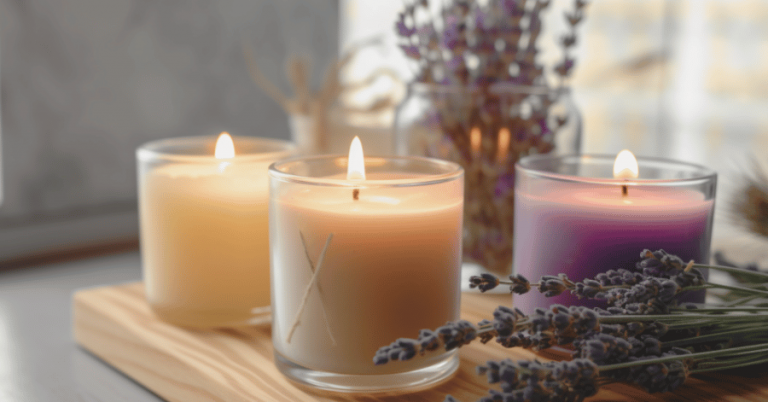If your not getting a restful nights sleep there is something you can do about it. If you find it hard to fall asleep or have trouble staying asleep or even wake up many times for the night tea can help.
Are sleepless nights keeping you awake? Then you could do with understanding the benefits of herbal tea for sleep. Caffeine keeps you awake but the right herbal tea blends will lull you to sleep without side effects. Whether it’s stress, anxiety or insomnia, herbal tea is a great way to easy sleep
In this article I’ll talk about herbal tea. All sorts of herbal teas. The freshness, potency and caffeine content, and how it can relax your body for a night of peaceful sleep. I’ll introduce you to the idea that herbal tea is a natural remedy for promoting relaxation and improving sleep quality.
Herbal Tea for Sleep
Best Herbal Tea for Sleep
- Chamomile tea is perhaps the most well-known herbal tea for promoting relaxation and improving sleep quality. It contains apigenin, an antioxidant that binds to certain receptors in the brain, reducing anxiety and initiating sleepiness.
- Lavender Tea is not only prized for its delightful aroma but also for its calming effects on the nervous system. Drinking lavender tea before bedtime can help reduce stress and promote a sense of tranquility conducive to sleep.
- Valerian Root Tea has been used for centuries as a natural remedy for insomnia and other sleep disorders. It contains compounds that increase levels of gamma-aminobutyric acid (GABA), a neurotransmitter that helps regulate mood and promote relaxation.
- Peppermint Tea is more commonly associated with digestion, its soothing properties can also contribute to better sleep. Peppermint tea’s menthol content can help relax muscles and alleviate tension, making it easier to unwind before bedtime.
- Passionflower Tea is a lesser-known herb that boasts potent sedative effects. Drinking passionflower tea can help reduce anxiety and calm racing thoughts, paving the way for a peaceful night’s sleep.
- Lemon Balm Tea is a member of the mint family and is prized for its calming effects on the mind and body. Drinking lemon balm tea before bedtime can help reduce anxiety and promote relaxation, making it easier to fall asleep.
- Cherry Tea, often made from dried cherry fruit or cherry blossoms, contains melatonin, a hormone that regulates sleep-wake cycles. Consuming cherry tea before bedtime may help improve sleep quality and duration.
Does Herbal Tea Expire?

like all good things in life, herbal tea does have a shelf life. While it won’t necessarily go bad like milk, it can lose its potency and flavor over time. So, it’s best to check the expiration date and store it properly in a cool, dry place to ensure maximum freshness. But hey, if it’s been sitting in your pantry for a while, fear not! It might still be perfectly fine to brew up a cup of relaxation.
When it comes to harvesting herbal tea, timing is everything. Each herb has its own unique growing season and peak flavor profile, so it’s essential to pick them at just the right moment to capture their full potency and goodness. Typically, herbs are harvested in the morning when the sun is gentle and the plants are at their freshest.
Depending on the herb, harvesting methods may vary. For delicate flowers like chamomile or lavender, gentle handpicking is the way to go, ensuring each blossom is plucked with care to preserve its delicate oils and fragrance. For leafy herbs like mint or lemon balm, a careful snip of the stems with sharp scissors or shears does the trick, leaving the plant intact for future growth.
Once the herbs are harvested, they embark on a journey of transformation. They’re often left to bask in the warm embrace of the sun or a well-ventilated area, a process that allows them to shed excess moisture and intensify their flavors. This slow drying process is where the magic happens – it’s when the herbs develop their characteristic aroma and taste, evolving into the fragrant treasures we know and love.
But the journey doesn’t end there. Proper drying and storage techniques are essential steps in preserving the herbs’ freshness and maximizing their shelf life. Thorough drying removes any lingering moisture, safeguarding against mold and bacterial growth that could spoil the tea. Once dried, the herbs are carefully stored in airtight containers, shielded from heat, light, and moisture – the enemies of freshness. This meticulous attention to detail ensures that the herbs remain flavorful and aromatic for months to come, ready to be brewed into a comforting cup of herbal bliss whenever the mood strikes.
Does Herbal Tea Have Caffeine?

Caffeine is a natural stimulant found in various plants, including coffee beans, tea leaves, and cacao pods. It belongs to a class of compounds called methylxanthines and is renowned for its ability to boost alertness, enhance concentration, and temporarily alleviate fatigue.
When consumed, caffeine acts on the central nervous system, blocking the effects of adenosine, a neurotransmitter that promotes relaxation and drowsiness. This blockade leads to increased neuron firing and the release of other neurotransmitters such as dopamine and norepinephrine, resulting in heightened mental alertness and a sense of wakefulness. While moderate consumption of caffeine can offer benefits such as improved cognitive function and increased energy levels, excessive intake can lead to side effects like jitteriness, increased heart rate, and insomnia.
One of the beauties of herbal tea is that it’s naturally caffeine-free, making it the perfect choice for those seeking a gentle way to unwind before bed. So, sip away without worrying about those sleep-disrupting jitters keeping you up all night.
Herbal Tea V’s Green Tea?

While both boast a plethora of health benefits, they serve different purposes when it comes to sleep. Green tea contains caffeine, which can energize and invigorate you – not exactly what we’re going for when we’re trying to catch some Z’s. On the other hand, herbal tea is like a warm hug for your soul, gently coaxing you into a state of relaxation and tranquility.
Herbal Tea and Stress Relief

Whether it’s work deadlines or family drama keeping you up at night, herbal tea is here to save the day. With its calming properties, herbal tea can help soothe frazzled nerves and melt away tension, leaving you feeling calm, collected, and ready to tackle whatever life throws your way.
While both green tea and herbal tea offer an array of health benefits, they cater to distinct needs, especially when it comes to facilitating a restful night’s sleep. Green tea, with its invigorating caffeine content, is renowned for its ability to provide a much-needed energy boost, making it a perfect companion for those groggy mornings or midday slumps. However, when the sun begins to set and the day’s demands start to wane, the last thing you need is a beverage that revs up your internal engine.
Unlike its caffeinated counterpart, herbal tea is like a gentle lullaby for your senses, soothing away the stresses of the day and preparing you for a peaceful night’s slumber. With a medley of fragrant herbs, flowers, and spices, herbal tea wraps you in a warm embrace, calming your mind and body. Whether it’s the subtle sweetness of chamomile, the soothing warmth of lavender, or the earthy richness of valerian root, herbal teas are carefully crafted to usher you into serenity.
Recap,
Herbal teas bring warmth, serenity and a peaceful nights sleep. Get into the habit of brewing a cup each night as a matter of routine and consider it self care before bed.
I may earn an affiliate commission when you purchase through the links on this site.



